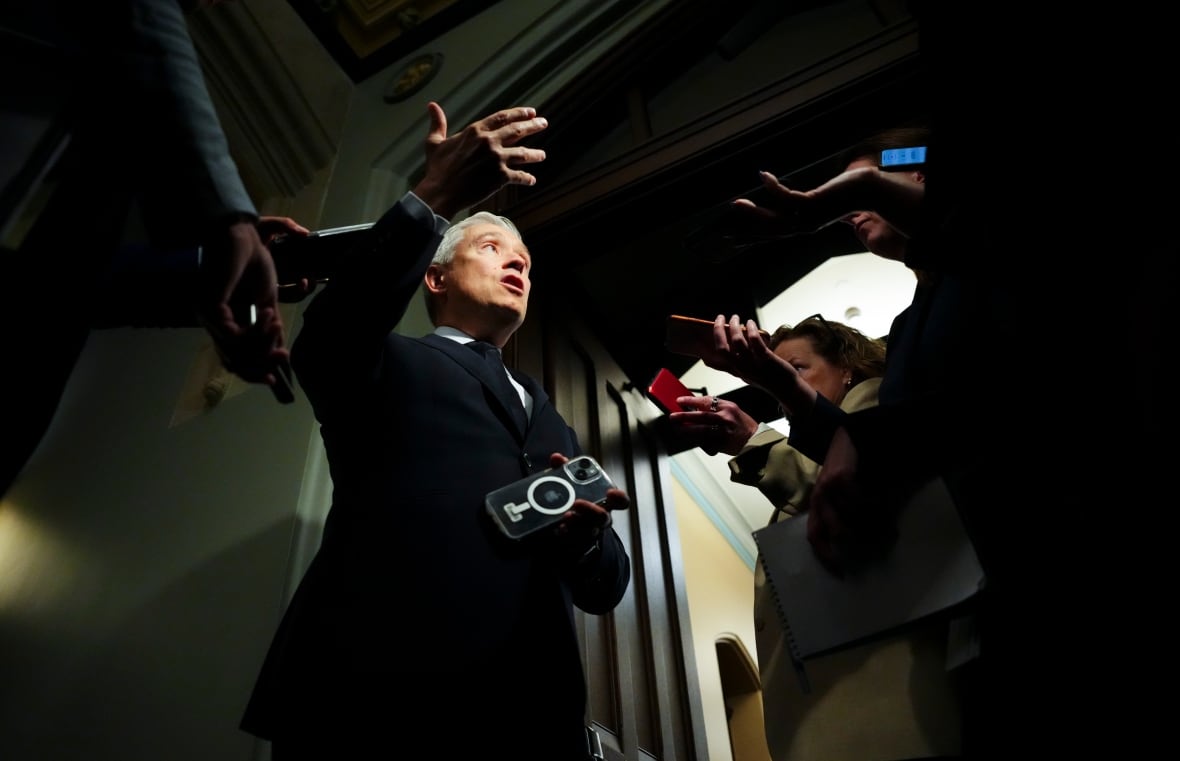Canada to launch CUSMA consultations after U.S. ambassador says bigger deal not in the cards

Canada is expected to announce it's launching formal consultations on the North American trade pact within the next week, after the Trump administration kicked off its own review and the U.S. ambassador said a larger deal is "not going to happen" soon.
Canada-U.S. Trade Minister Dominic LeBlanc's office told CBC News the government is expected to imminently post an official notice seeking the public's comments and feedback about the Canada-U.S.-Mexico Agreement (CUSMA).
In preparation for the review, "Canada will be engaging with Canadian industry leaders, provinces and territories and Indigenous partners," LeBlanc's office said in a statement.
The U.S. announced Tuesday it's formally starting consultations to evaluate the agreement's results over the past five years. The Americans' move starts the clock on a months-long process and signals to the Canadian government that the formal negotiations to review CUSMA could begin in early 2026.
U.S. Ambassador to Canada Pete Hoekstra said that evening the U.S. is moving ahead with consultations because it's now "obvious at least at this point in time" that Canada and the U.S. aren't going to reach a bigger agreement.
"The Americans were hopeful that we could negotiate a bigger deal," Hoekstra said during a keynote address at a Canadian International Council event.

"Whether it's on trade, whether it's energy, whether it's automotive, whether it's nuclear defence and all those types of things, we were hoping that we would not just renegotiate CUSMA but that we could take it into being something much bigger," he said.
"It's obvious, at least at this point in time, that that's not going to happen."
Hokestra said these consultations open the door for Americans to start "funnelling comments into the federal government" to figure out what a revised CUSMA will look like.
Asked about Hoekstra's comment about a bigger deal, Finance Minister François-Philippe Champagne said Canada proposed an economic and security partnership after the U.S. turned its back on the country with its tariff agenda.
U.S. President Donald Trump's tariffs remain in place, including a 50 per cent tax on steel and aluminum imports.
"We've been engaging very actively with the U.S. administration since the beginning," Champagne said. "Canada's always been, I would say, proactive, forthcoming, positive in how we engage."

Prime Minister Mark Carney originally said he was seeking a new security and economic agreement with the U.S., but this month said the government is now in talks over a series of smaller deals to help industries hit hard by Trump's tariffs. Carney has also said officials are preparing for the review of CUSMA.
Carney faced a question from Bloc Québécois Leader Yves-François Blanchet on Monday about the status of Canada's talks with Washington.
During the first question period of the fall parliamentary sitting, Carney responded that he spoke to Trump over the weekend and regularly speaks to him. Carney called the president a "modern man" in French, saying they text each other. He also described the Canada-U.S. relationship as good while acknowledging difficulties and setbacks.
The Trump administration also posted a federal notice on Wednesday seeking feedback about potentially expanding the list of goods made from steel and aluminum facing a 50 per cent tariff.
It's mandatory for Canada, the U.S. and Mexico to hold a joint CUSMA review after six years, according to the terms negotiated during Trump's first term.
Mexico's Economy Secretary Marcelo Ebrard posted a video online Wednesday saying the country is also starting its public consultation process.
The prime minister and several ministers are headed to Mexico Thursday to try and deepen the relationship between the two countries. The trip is largely being viewed as an effort to shore up support ahead of the CUSMA review.
cbc.ca





